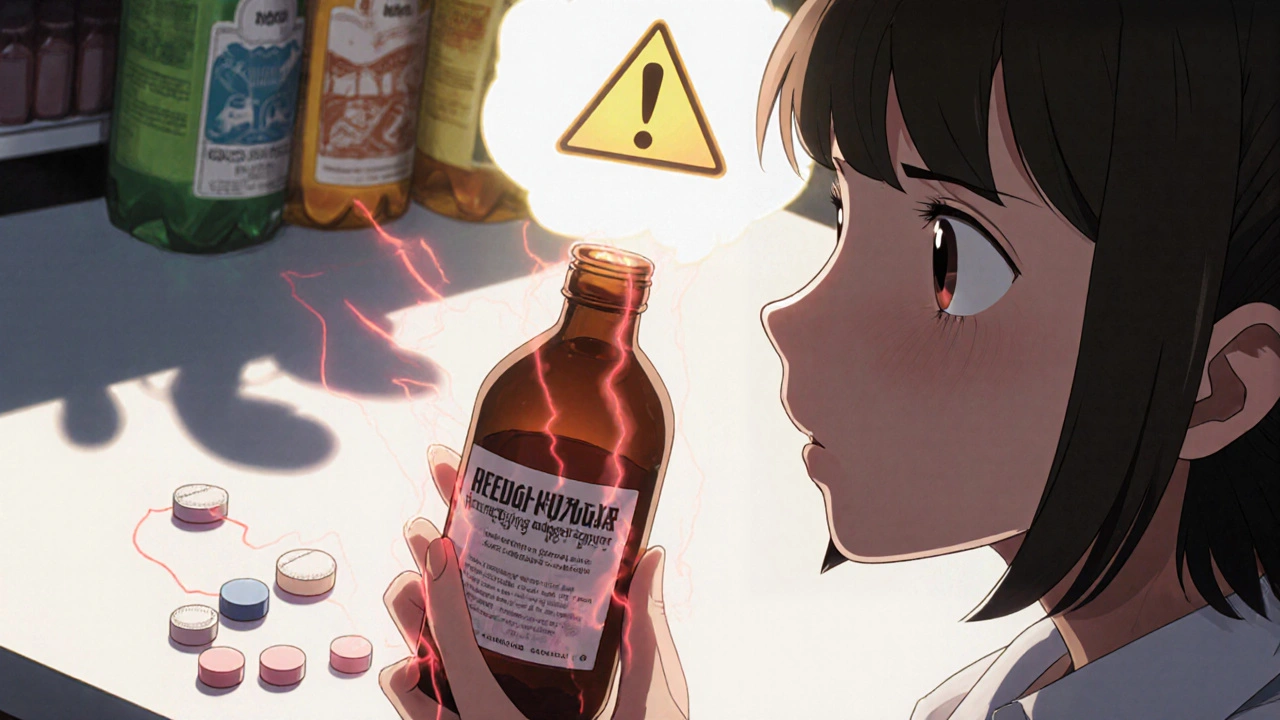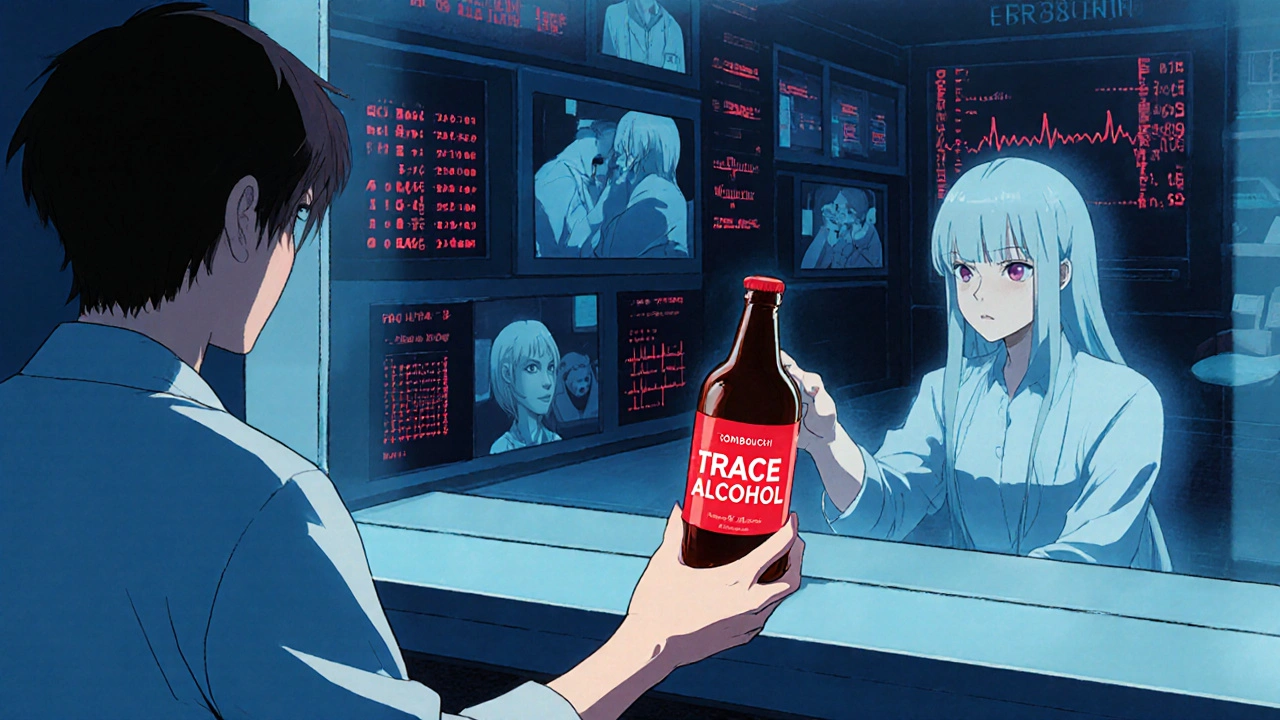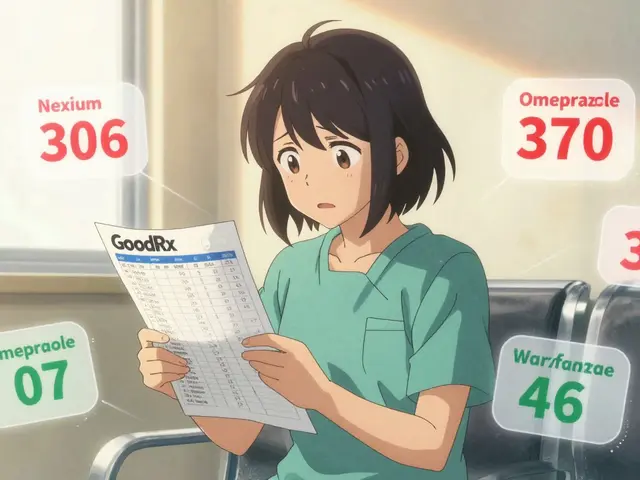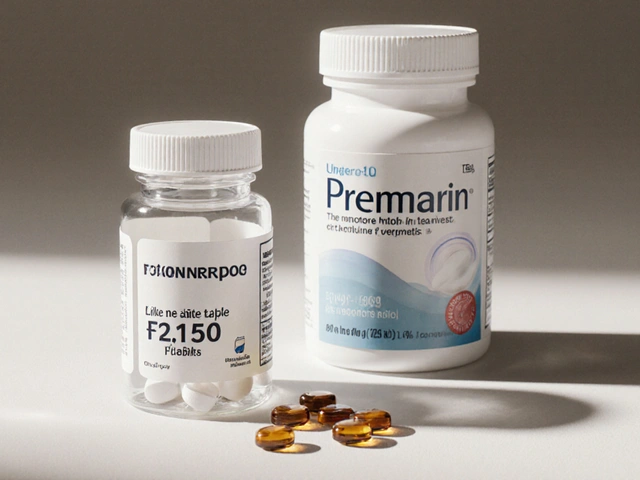
Health November 28, 2025
Kombucha and Alcohol-Sensitive Medications: What You Need to Know Before You Drink
Kombucha Medication Safety Checker
Result
Most people think of kombucha as a healthy, fizzy tea drink-something gentle, natural, and safe. But if you’re taking medication that reacts badly to alcohol, even a small glass of kombucha could cause serious side effects. You might not realize it, but kombucha contains alcohol. Not a lot-but enough to matter when you’re on certain drugs.
Why Kombucha Has Alcohol at All
Kombucha isn’t brewed like beer or wine. It’s fermented. That means yeast eats sugar in sweetened tea and turns it into alcohol and carbon dioxide. It’s the same process that makes bread rise or wine ferment. The bacteria in the SCOBY (that slimy disc floating in your bottle) help balance it out, but they don’t remove the alcohol. The alcohol stays. Commercial brands keep alcohol levels under 0.5% ABV because of federal rules. That’s the legal limit for a drink to be called non-alcoholic in the U.S. But that doesn’t mean it’s zero. And homemade kombucha? That’s a different story. Studies show homebrewed batches can hit 1.8% to 2.5% ABV-almost five times the legal limit for store-bought versions. That’s like drinking a quarter of a beer in one glass.Which Medications Are at Risk?
It’s not just about getting drunk. Even tiny amounts of alcohol can interfere with how your body processes certain medications. The biggest red flags are:- Metronidazole and tinidazole (antibiotics): Mixing these with alcohol-even trace amounts-can cause severe nausea, vomiting, flushing, and rapid heartbeat. There are documented cases of people in emergency rooms after drinking kombucha while on these drugs.
- SSRIs and other antidepressants: Alcohol can make dizziness, drowsiness, and mood swings worse. One pharmacy survey found 62% of reported kombucha-medication reactions involved antidepressants like sertraline or fluoxetine.
- Diabetes medications: Drugs like metformin and chlorpropamide can cause dangerous drops in blood sugar when combined with alcohol. One patient reported a 15-point blood sugar plunge after drinking kombucha with metformin-enough to require an ER visit.
- Benzodiazepines (like Xanax or Valium): Alcohol boosts their sedative effect. Even 0.5% ABV can make you feel foggy, uncoordinated, or dangerously sleepy.
- Nitrates (for heart conditions): Alcohol can cause a sudden, dangerous drop in blood pressure when taken with these drugs.
That’s not a short list. The American Pharmacists Association lists 17 major medication classes with known interactions. Many people don’t even know kombucha counts as an alcohol source. Pharmacists often miss it too-only 32% correctly identified it in a recent survey.

Commercial vs. Homemade: Big Differences in Risk
Not all kombucha is the same. Commercial brands have to test their batches. Since 2023, 92% of major producers use HPLC testing to ensure alcohol stays under 0.5%. Some, like Health-Ade, now use blockchain QR codes so you can scan a bottle and see the exact ABV for that batch. But homemade kombucha? No rules. No testing. No warnings. Temperature, fermentation time, sugar amount, even the type of tea can push alcohol levels way up. A 2024 Harvard study found 43% of homebrewed kombucha exceeded 0.5% ABV. Twelve percent hit 3.2%-equivalent to light beer. If you’re brewing your own and taking medication, you’re playing Russian roulette with your health. You can’t tell by taste, smell, or fizz. You need a tool like the HM Digital HA-520 alcoholmeter to measure it accurately. Most homebrewers don’t own one-and don’t know they should.Labeling Is Still a Mess
You’d think if alcohol is in there, it would say so. But until January 2024, many bottles didn’t. Even now, only 63% of commercial brands clearly state “Contains Trace Alcohol” on the label. The FDA now requires it-but enforcement is still catching up. You might still see bottles without warnings. ConsumerLab’s 2023 survey found 18% of kombucha drinkers had experienced side effects from mixing it with meds. Sixty-two percent of those cases involved antidepressants. People didn’t know kombucha was the cause. They blamed stress, the weather, or just “feeling off.”
What Should You Do?
If you’re on any medication that warns against alcohol, here’s what to do:- Check your prescription label. Look for words like “avoid alcohol,” “may cause drowsiness,” or “do not consume with alcohol.”
- Ask your pharmacist. Don’t assume they know. Bring the kombucha bottle. Say: “Does this interact with my meds?”
- Choose pasteurized, store-bought brands. They’re more consistent. Avoid homemade unless you’re testing every batch.
- Wait 48 hours after taking alcohol-sensitive meds before drinking kombucha. The Cleveland Clinic recommends this gap to let the drug clear your system.
- Track your symptoms. If you feel dizzy, nauseous, or unusually tired after drinking kombucha, stop. Write it down. Talk to your doctor.
Some experts say 0.5% is too low to matter. They compare it to overripe fruit. But that’s not how pharmacology works. Your body doesn’t care if the alcohol came from a grape or a SCOBY. It reacts the same way. And if you’re taking multiple meds, or are over 50 (as 38% of kombucha drinkers are), your body processes alcohol slower. That means even tiny amounts build up.
The Bigger Picture
The kombucha market is booming-over $3 billion in sales in 2023. But safety hasn’t kept pace. The NIH just launched a $2.3 million study to better understand these interactions. Results won’t be out until late 2025. Until then, you’re on your own.There’s no reason to avoid kombucha entirely. But if you’re on medication, treat it like alcohol. Not because it’s strong-but because it’s unpredictable. And when your health is on the line, unpredictability is the real danger.
Can I drink kombucha if I’m on metronidazole?
No. Even small amounts of alcohol in kombucha can trigger a severe reaction with metronidazole, including vomiting, rapid heartbeat, and flushing. The risk is real and documented in medical journals. Avoid kombucha completely while taking this antibiotic and for at least 48 hours after your last dose.
Is store-bought kombucha safe with my meds?
It’s safer than homemade, but not risk-free. Most commercial brands stay under 0.5% ABV, but that’s still alcohol. If your medication warns against alcohol, even trace amounts can cause side effects. Always check the label for “Contains Trace Alcohol” and talk to your pharmacist before drinking.
How do I know if my kombucha has alcohol in it?
Commercial brands must list alcohol content if it’s above 0.5%, but many don’t. Look for “Contains Trace Alcohol” on the label. For homebrew, you need an alcoholmeter like the HM Digital HA-520 to measure ABV accurately. Taste, smell, or fizz won’t tell you-it’s invisible.
Can kombucha affect my blood sugar if I have diabetes?
Yes. Alcohol can enhance the blood sugar-lowering effect of diabetes medications like metformin or chlorpropamide. There are documented cases of people needing emergency care after drinking kombucha with these drugs. Monitor your glucose closely if you choose to drink it, and avoid it if your levels are already unstable.
What should I do if I feel sick after drinking kombucha with my medication?
Stop drinking it immediately. If you have nausea, dizziness, rapid heartbeat, confusion, or a sudden drop in blood sugar, seek medical help. Bring the kombucha bottle with you-it helps doctors identify the cause. Report the reaction to your pharmacist and doctor. You’re not alone-many others have had the same issue.
Write a comment
Items marked with * are required.






15 Comments
Yash Hemrajani November 29, 2025 AT 13:40
Oh wow, so kombucha is just alcohol in a hipster costume? I’m shocked. Next you’ll tell me ‘natural’ energy drinks have caffeine. 🤡
At least tell me the label says ‘Contains Trace Alcohol’-but nope, that’s too much to ask from the wellness industrial complex.
Pawittar Singh November 30, 2025 AT 01:08
Bro, I’ve been drinking kombucha for 3 years and never thought twice-until now. 😅
Thanks for laying this out so clearly. My mom’s on metformin and she loves her daily brew. Gonna get her to check with her pharmacist tomorrow. You’re a lifesaver, man. 🙏
Josh Evans November 30, 2025 AT 07:28
Y’all are overreacting. 0.5% is basically nothing. It’s like eating a banana that’s been sitting out too long.
My grandma drinks kombucha with her blood pressure meds and she’s fine. If you’re freaking out over trace alcohol, maybe you’re the problem, not the drink.
Allison Reed December 1, 2025 AT 06:33
This is such an important post. Seriously, thank you for sharing the science and the real-life cases.
So many people think ‘natural’ means ‘harmless’-but biology doesn’t care about your vibes. If your med says ‘no alcohol,’ kombucha counts. Period.
Let’s spread this info. Someone’s life could depend on it.
Jacob Keil December 2, 2025 AT 06:25
the whole thing is a scam. alcohol is alcohol. whether its from grapes or some slimy pancake in a jar. we live in a world where we call it 'probiotic' to sell it but its still just fermented sugar water. the fda is asleep at the wheel. and the people? they just want to feel good about drinking something that looks like alien slime. wake up.
Rosy Wilkens December 3, 2025 AT 18:00
Have you considered that this is all a pharmaceutical industry plot? The FDA only started requiring labels in 2024 because Big Pharma wanted to scare people away from natural alternatives.
And those ‘documented cases’? Probably funded by drug companies. Who says kombucha causes reactions? Maybe it’s the meds themselves. Maybe the ‘alcohol’ is just a scapegoat.
And why do all the studies come from the US? What about other countries? Are they lying to us? Or is this just another way to control what we consume?
Andrea Jones December 4, 2025 AT 10:25
Okay, but can we talk about how wild it is that we have to scan a QR code to find out if our tea has alcohol?
Like… we’re not in 1920. We’re in 2024 and I need a lab report to drink a fizzy drink?
Also-yes, I’m checking my label now. Thanks for making me think twice. 😅
Justina Maynard December 5, 2025 AT 17:04
My sister had a seizure after drinking kombucha with her Zoloft. She didn’t know why. No one connected the dots.
Now she’s off both. And I’m not just saying this to be dramatic-I’ve seen the ER reports. The doctors were baffled until she mentioned the kombucha.
So yeah. It’s not ‘maybe.’ It’s ‘I almost died.’
And the label? It said ‘Probiotic Superfood.’ No mention of alcohol. No warning. Nothing.
Someone should sue.
Evelyn Salazar Garcia December 6, 2025 AT 05:37
Why are we even talking about this? It’s kombucha. It’s not even real alcohol. Just stop being so paranoid.
Also, why is everyone so obsessed with tea? It’s just water with bubbles.
Clay Johnson December 7, 2025 AT 03:57
The real issue isn't kombucha. It's the illusion of control. We think we can consume anything labeled 'natural' and remain pure. But the body doesn't care about your intentions. It only reacts. Alcohol is alcohol. Period.
Jermaine Jordan December 8, 2025 AT 18:13
THIS IS A PUBLIC HEALTH CRISIS.
Millions of people are sipping this ‘wellness elixir’ while on life-saving meds and NO ONE IS TELLING THEM.
Pharmacists are clueless. Labels are misleading. And the kombucha industry? They’re making bank off ignorance.
People are ending up in ERs because they thought ‘non-alcoholic’ meant ‘safe.’
WE NEED A NATIONAL CAMPAIGN. NOW.
Chetan Chauhan December 9, 2025 AT 23:24
bro kombucha is just vinegar with sugar. if you can't handle 0.5% alcohol then maybe you shouldnt be on meds at all. also why is everyone so scared of fermentation? we used to drink this stuff in ancient times. it's not poison. its tradition.
Phil Thornton December 11, 2025 AT 00:45
I drank kombucha for 5 years with my anxiety meds.
Never had an issue.
So I guess my body’s just immune to science.
Pranab Daulagupu December 11, 2025 AT 19:19
As a homebrewer, I can confirm: ABV varies wildly. One batch hit 2.1%. I didn’t know until I bought a refractometer.
Bottom line: if you’re on meds, skip the DIY. Stick to the ones with blockchain labels. It’s not about fear-it’s about precision.
And yeah, we need better education. But also, trust the data, not the hype.
Barbara McClelland December 13, 2025 AT 13:50
Okay, real talk-I’m on sertraline and I love kombucha.
But now I’m going to check my label, call my pharmacist, and maybe wait 48 hours after my dose.
It’s not about giving up my favorite drink.
It’s about respecting my body and my meds.
Thanks for the nudge. I needed this.